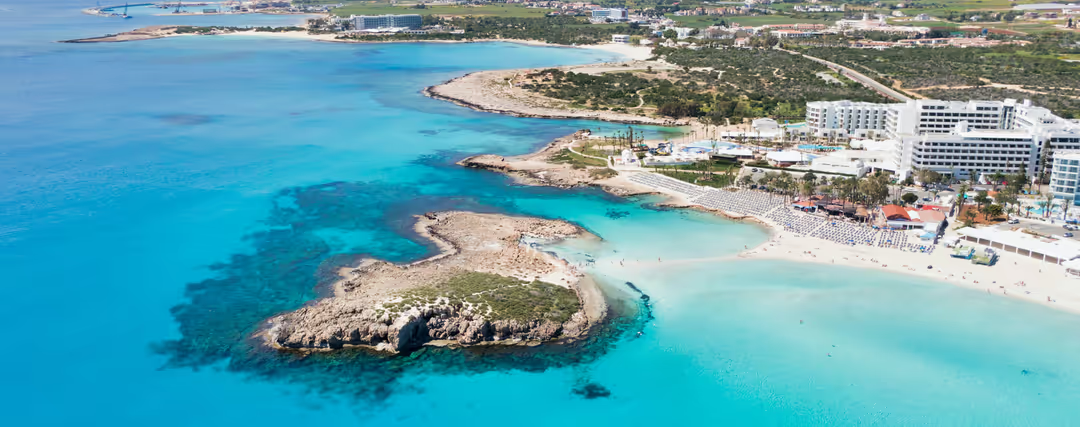

Are you planning your Erasmus in Cyprus? You’ve come to the right article! Here we give you information about this destination, so you can plan your exchange by getting to know it better. You’ll find information about the best cities to study in, different options and requirements for international students, information about what to do in Cyprus, accommodation possibilities and the best universities. Let's get to it!
Several cities stand out as popular destinations for an Erasmus in Cyprus. Nicosia, the capital of the Republic and the only divided capital in Europe, combines history and modernity, with its old town surrounded by medieval walls contrasting with modern buildings and bustling streets. Limassol, the country's second-largest city, attracts students with its lively nightlife, beautiful beaches and thriving cultural scene. Another option is Larnaca, known for its quiet charm and beautiful beaches, offering a more relaxed atmosphere.
These are some of the most popular cities as an Erasmus destination in Cyprus:
Cyprus, located between Europe, Asia and Africa, has a rich history and a unique mix of cultures. Your exchange will allow you to immerse yourself in this cultural diversity, explore ancient traditions and experience Cypriot hospitality.
Many academic programs in Cyprus are taught in English, which provides an ideal opportunity to improve your English skills in an academic and everyday environment. In addition, depending on which part of the country you’re in, you’re going to be able to learn Greek or Turkish.
On the Island of Aphrodite, you’ll enjoy a Mediterranean climate with mild winters and warm summers. The favourable climate contributes to an outdoor lifestyle, encouraging activities such as hiking, water sports and outdoor events. Enjoy as much as you can!
The island offers breathtaking scenery, from golden sandy beaches to picturesque mountains. During your stay, you’ll have the opportunity to explore emblematic sites, such as ancient ruins, monasteries and nature reserves.
Cyprus is divided into six administrative districts, each offering a unique blend of history, culture, scenery and lifestyle. We recommend that you visit all of them, or at least the ones that catch your attention!
On the one hand, there’s Nicosia. As the capital of Cyprus and the only divided capital in Europe, Nicosia has a fusion of old and new. The old town, surrounded by Venetian walls, is home to narrow cobbled streets and traditional markets, while the modern part offers a bustling urban life, with chic stores, restaurants and a vibrant cultural scene.
Known for its cosmopolitan atmosphere and lively nightlife, Limassol is the second-largest city in Cyprus. The endless beaches, modern shopping malls and restaurants along the coast make Limassol an ideal place for urbanites.
Meanwhile, the region of Larnaca, with its laid-back charm, is a blend of tradition and modernity. The city is home to a beautiful Ottoman mosque, the church of St. Lazarus and a relaxing promenade. It’s an ideal place for those seeking a quieter atmosphere without giving up the comforts of modern life.
Paphos, a UNESCO World Heritage Site, is rich in archaeological sites and mythology. From royal tombs to ancient theatres, Paphos offers a journey back in time. In addition, its beaches and fishing port add a picturesque touch to the region.
We also highlight Famagusta, located in the northern part of Cyprus. It’s known for its ancient walls and the Old Town, which has remained largely unchanged for centuries. Although part of the city is in a conflict zone, the region is still rich in history and tourist attractions.
Last but not least, we find Kyrenia. Also located in the northern part of Cyprus, it’s famous for its picturesque harbour and castle. The town combines the natural beauty of the mountains with mediaeval history and architecture. Cobblestone streets and sea views make Kyrenia an enchanting destination.
Find the ideal accommodation in your desired location